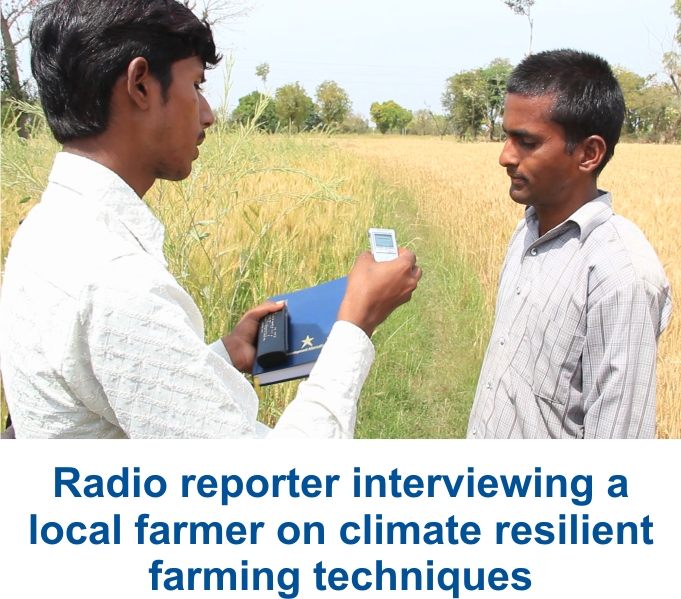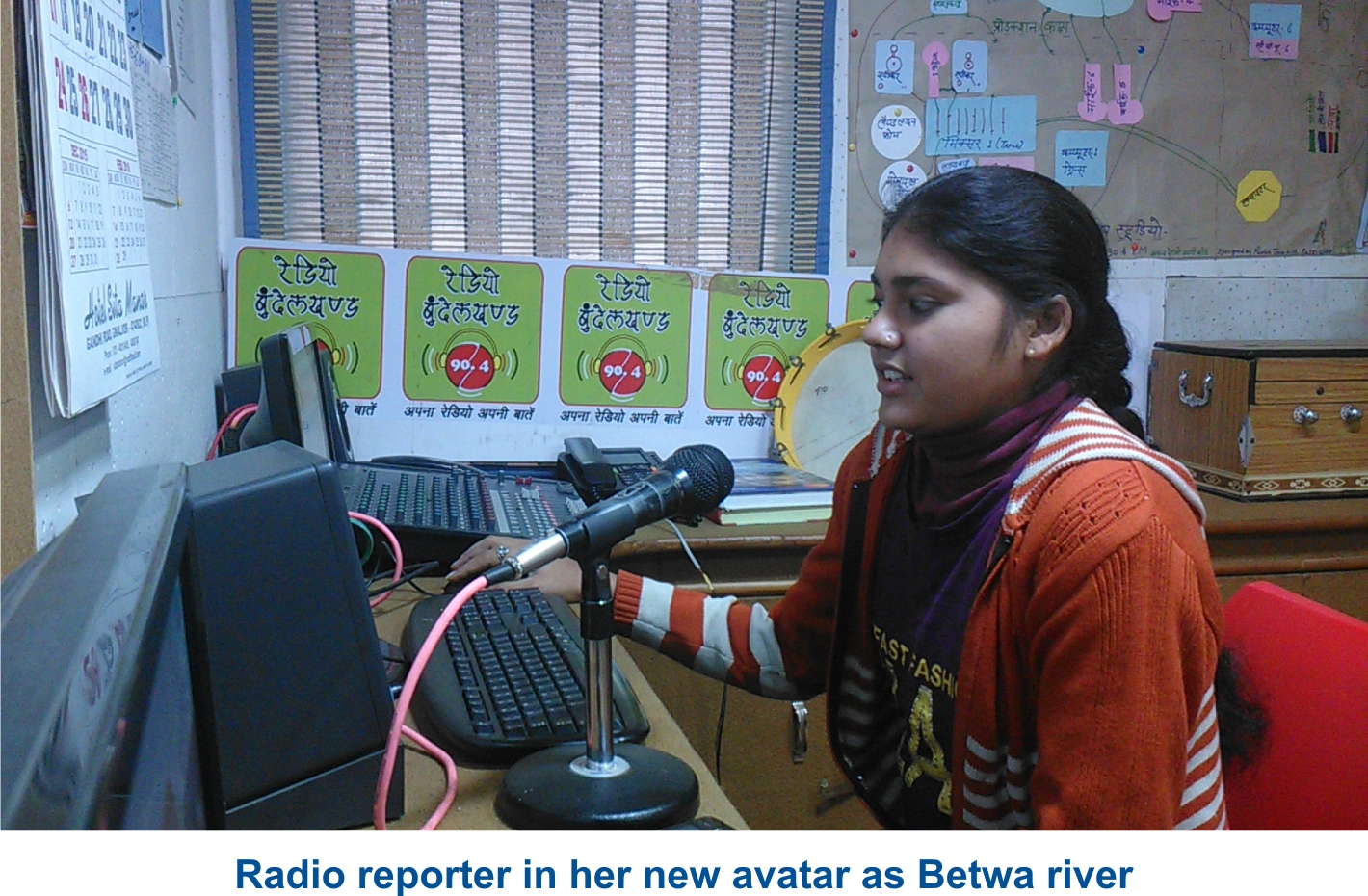Community Radio - A Platform
to Tune
into the Discourse on Climate Change
The Bundelkhand region's agricultural dependent economy has a history of droughts and endemic poverty, both stressed by climate change. A 2014 study by the National Institute of Disaster Management mentioned that 18 out of the last 30 years of recurring and long droughts, attributed by meteorologists to climate change, are playing havoc with the lives of 21 million poor and marginalised people of Bundelkhand. The study alludes to that fact that ‘most households have sold assets... hundreds of farmers have committed suicide due to starvation and debts abound.’
What does a community radio station like Radio Bundelkhand do in this setting?
Despite the rise in social media and the DTH
network, community radio still rema ins a powerful medium to
reach rural communities in India. For most families in its listening range,
tuning into Radio Bundelkhand is a choice, not only because the Bundeli folk
songs they listen over it echoes their culture, but also because
it speaks of their lives, their problems and solutions in their language and
along with their own experiences.
ins a powerful medium to
reach rural communities in India. For most families in its listening range,
tuning into Radio Bundelkhand is a choice, not only because the Bundeli folk
songs they listen over it echoes their culture, but also because
it speaks of their lives, their problems and solutions in their language and
along with their own experiences.
Take for instance ‘Shubh Kal’, a signature
programme on climate change aired over the radio. Literally meaning, a
better tomorrow, Shubh Kal addresses climate change sensitivities by
communicating information regarding risks and adaptation measures in locally
relevant and easily comprehensible messages. In doing so, it also attempts
to bring grassroots voices and priorities on climate change and development
to the attention of the scientists and the policy makers. Shubh Kal was
conceived on a basic premise – that farmers, even if illiterate, have much
knowledge to share on the burning topic of climate change and that any work
on adaptation to climate change needs to be centred around them. 
Gauri Sharma, a radio jockey attached to the radio station displays how people connect to the programmes on the radio station as she gives her voice to the Betwa River, a branch of the Yamuna that flows through the Bundelkhand region. The programme is a half-hour narration of the river – its exposed river bed in the peak of summer and the force of its current when the rains take over, cutting away topsoil and its muddy brown water from shore to shore.
Gauri sits on the banks of the Betwa daily to feel the connection with the river, reflect on its issues and increase her understanding on the subject by talking o passers by who are mostly farmers like her father. Her programme is a tribute to the river over the radio as Betwa is one of the most important natural resource in the region. As she begins her programme with her opening lines: “Main Betwa hun” (I am Betwa), listeners tune in, as if it were contagious and immediately start calling to be part of the programme.
Journalist Joydeep Gupta, who has conducted a series of workshops for radio reporters to help them understand the effects of climate change on agriculture was stumped to see how radio journalists could understand and relate to the issue of climate change – what is happening to water flows in transboundary rivers as a result of climate change, how is it affecting agriculture, how can journalists incorporate valuation of natural resources into their reports and still be understood by the lay audience, and so on.
This story underlines the need to keep the radio station and other forms of community media tuned in to the discourse on climate change because lessons on adaption to the changing climate can be best provided by those living through it. ■
Desh Raj Singh
dsingh@devalt.org